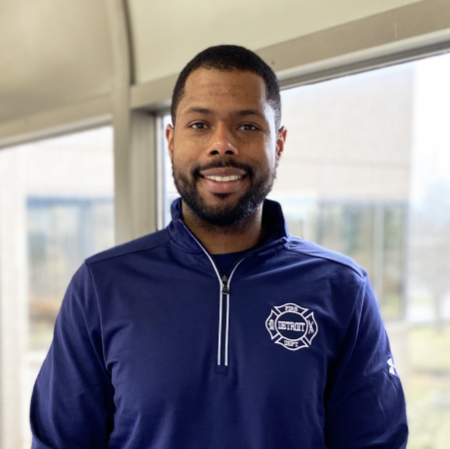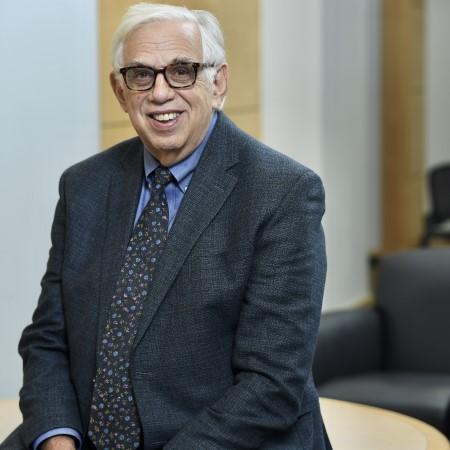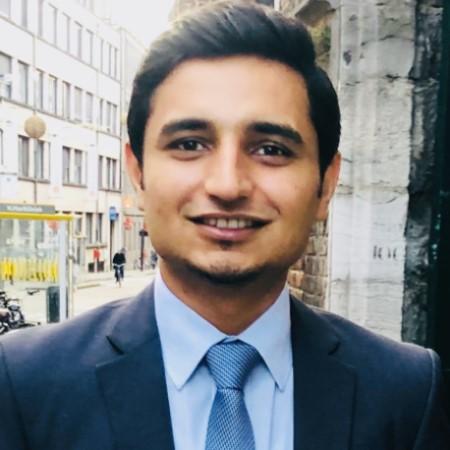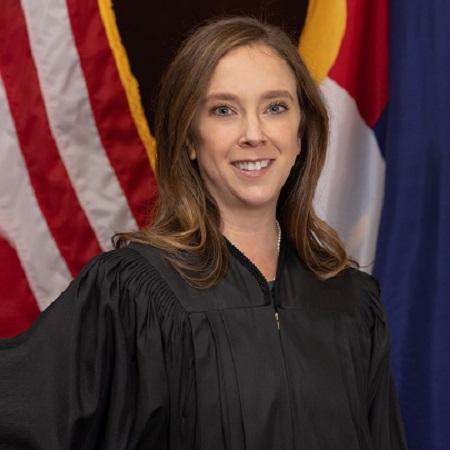Harold E. Kaplan is a dual degree graduate of Pace University, having received his BBA in 1972 from Pace University, and his JD in 1983 from what was then known as Pace Law. After spending years in hospital administration, Harold reached out to former Pace University President Edward Mortola and began seriously considering law school. Three years later, in 1980, Harold began his law school journey and then in 1983, he graduated and was admitted to the NY Bar, prepared well by the Law School to start his career as a health law attorney. Over the years, Harold has been a generous supporter of both Pace University and the Elisabeth Haub School of Law at Pace University. Most recently, he endowed a scholarship, the Harold E. Kaplan Health Law and Policy Scholarship, to support students who are passionate about Health Law and Policy. Learn more about Harold, his time spent at Pace, his career, and more in this Q&A.
Can you tell me a bit about your background and undergraduate experience at Pace?
I grew up in Brooklyn and decided I wanted an undergraduate business degree. Although accepted to several colleges, I liked that Pace was then a small private school, so I attended what was then Pace College, from the fall 1968 to June 1972 and graduated with a BBA with concentrations in Law, Taxation and Economics.
Being a small school, among other things, I became acquainted with Pace President, Edward Mortola. He was always accessible to students and became a friend. It was the kind of student experience which endears the student to the school.
Albert Kalter, who taught all the undergraduate taxation courses, was the best professor I had, (and there were many excellent ones). Federal and state taxation are not the easiest subjects, and he was a great educator who took the time to explain what he was teaching. He taught his students how to read, interpret and understand the tax code which is not a simple task. He insisted that students come to class prepared, and you always knew where you stood with him. If you were unprepared, he asked that the student leave; this only happened once. He and I became good friends.
Importantly, most of the undergraduate courses I took required a term paper. After graduating, I attended the University of Ottawa, in Ottawa, Ontario, earning my Master of Health Administration degree. Given the many required research or term papers I wrote, I was well prepared for graduate school, which required numerous term papers, and to graduate, a research thesis.
Did you always want to be a lawyer?
I had considered it as an undergraduate student, but I also wanted to be a hospital administrator. When I received a traffic ticket in 1971, I asked for an administrative hearing in Manhattan traffic court and with a little persuading and careful reading of the New York State traffic code, and photographs of the street where the alleged offense occurred, I was found “not guilty”. The police officer who testified against me wasn’t happy. At home, my parents encouraged me to go to law school, but I still was more interested in hospital administration.
What was your path to law school and then ultimately to pursuing a law degree?
In 1974, I began my hospital administration career at a major NYC teaching hospital. I was negotiating contracts for expensive high tech medical equipment, and when reading purchase contracts, which I often did, I became interested in the law. When one of my departments had an ongoing dispute over an expensive piece of equipment, I was able to extend the warranty, arguing that the hospital hadn’t accepted the equipment because it didn’t meet the terms of the purchase agreement. At that point, I began to understand the value of having a law degree.
What made you choose Pace for your law degree?
Pace University was an excellent choice for my college degree and I always thought very highly of the school which had a growing reputation. In 1977, I spoke with President Edward Mortola about Pace Law , who urged me to apply to its new law school. Instead, I detoured to Florida to be the Assistant Administrator at a large community hospital. Shortly thereafter, I decided to go to law school and being in Florida, considered schools in Florida and NY. Applying to Pace Law made sense since I felt that it would provide an excellent legal education. Once accepted, my wife and I relocated from South Florida to Westchester County. Of course, three years earlier, Dr. Mortola strongly recommend that I attend Pace Law, and he and Professor Kalter were helpful references.
Who were some of the most memorable professors you had during your time as a law student?
There were many. Professor Philip Blank who taught legal methods and wills and estates. Professor Crockett who taught tax law. Professors Doernberg and Zeigler, who had very organized teaching methods and were both excellent educators. Professors John Humbach and Hervey Johnson were both excellent educators and Professor Joseph, who taught several commercial law courses and was always very accessible to students. Professors Ralph Stein and Bartlett as well. All of these professors were accessible, cared about their students, and left a very positive impression on me. They each had different teaching styles but as a group made being a law student more interesting, a little easier and sometimes fun.
What did you enjoy most about law school?
Considering it my occupation, I enjoyed the intellectual challenge of reading, understanding and briefing cases. I usually was at the law library when the door was unlocked in the AM which in some ways still felt like going to work. I long hand briefed every case and doing so, enjoyed sitting in class and putting check marks in my notebook, next to my notes about the key points being made by the professor about the holding, and the facts. It was a game and being a law student was actually fun.
What lessons from law school stayed with you?
Take your job seriously and do it well. Don’t automatically rely on others to get the job done if you are supposed to do it yourself. Delegate carefully.
You were a health law attorney for over thirty years, practicing mainly in Florida, what drew you to that area of law?
Being a former hospital executive, for me, it was natural to become a health lawyer, although I briefly considered taxation law which I was also interested in and was, to my understanding, equally difficult. At the first firm I worked at in New York City, we represented hospitals. When I opened my own practice in South Florida, I became an attorney for physicians, physician practices and other licensed health care professionals, since virtually all the hospitals already had representation.
During your time as a health law attorney, what did you find most rewarding and/or challenging about that practice area?
It was very rewarding to represent medical practices which had a wide range of legal issues making the day-to-day practice much more interesting and rewarding. Whether by good fortune or good lawyering, most of the matters I handled were resolved in my clients’ favor. I was also very active in the Florida Bar’s Health Law Section which was rewarding. I was often program chair and spoke at many Florida Bar CLE programs and volunteered for most of the Section’s positions, including ascending to Chair of the Section.
Currently, you provide arbitration services – how does that compare to your law practice?
I took the required Florida one week course to become a Certified Mediator and began mediating disputes. Shortly thereafter, the American Health Law Association began its ADR service, and recruited attorneys to be mediators and arbitrator. I started taking arbitration courses and stopped mediating.
Traditionally, arbitration was sought out by commercial disputants to serve as an efficient and final mechanism to resolve disputes, which today still remain key factors for choosing arbitration over traditional litigation. Arbitration is very different from practicing law, but at its core, you need to be an experienced attorney, sensitive to due process, hearing practice, etc. and most of all assume a leadership role in the arbitration case to avoid delays and make the process as effective and efficient as reasonably possible. Party’s attorneys usually prefer arbitrators with subject matter knowledge and experience to serve as arbitrators. Being an arbitrator teaches you to be very quiet about what you are hearing and reading and make carefully considered statements. With the right arbitrator, arbitration is beneficial to resolving commercial disputes.
You have always been a generous supporter of your alma mater, thank you. Recently, you endowed a scholarship, the Harold Kaplan Health Law and Policy Scholarship, to support students who are passionate about Health Law and Policy - as an alumnus, why do you feel it is important to give back?
As an undergraduate student, Pace University prepared me well for graduate school, and it didn’t take long to discover that Pace Law equally prepared me well for practicing law. Overall, the Pace community is very special to me, and I wanted to support its continuing mission, now and in the future. I also wanted to support law students who have an interest in health law and also take the opportunity to simply show my support for the Law School.
Do you have any advice for current or future law students?
I have lots of advice for current and future law students most of which can only be imparted one on one. However, future law students should have an understanding of the hard work required to excel in law school and also as a practicing attorney. Being an attorney and doing it well is not easy. Law students should enjoy learning about the law and should take sufficient time to read and understand the cases. It is stimulating to learn about how the law has evolved, and understand that once they are attorneys, they are joining a sacred profession which provides important services to their selected portion of society. Finally, become active in your bar association, and especially in your area of practice and always network.
What are some of your passions aside from the law?
I have many interests, but I still enjoy giving back. I am a volunteer attorney at Pisgah Legal Services in Asheville, NC, and helping those less fortunate and unable to afford and hire an attorney is very important to me. There is also a large group of retired volunteer attorneys in Asheville and being part of this group is very rewarding. I also frequently bike ride and play the piano. And, most importantly, my wife, my children, and grandchildren, are important to me so I dedicate time to family.


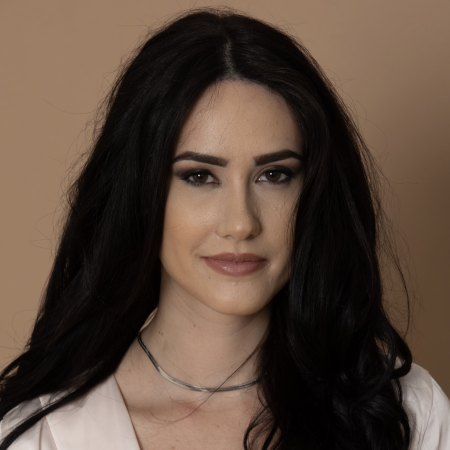
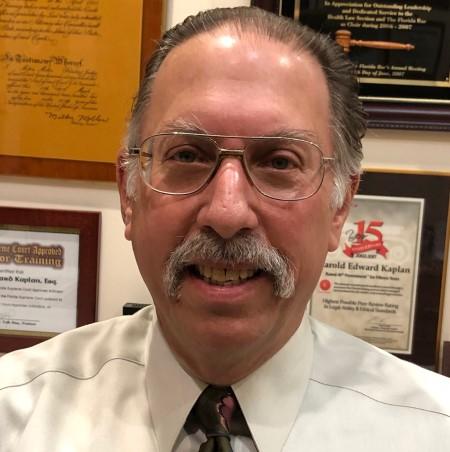
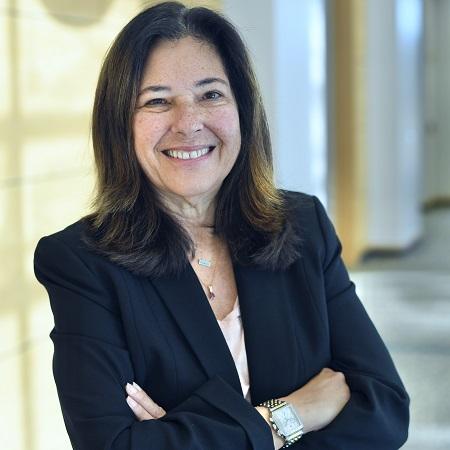
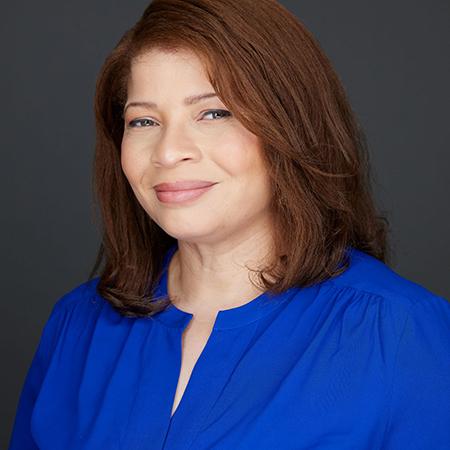
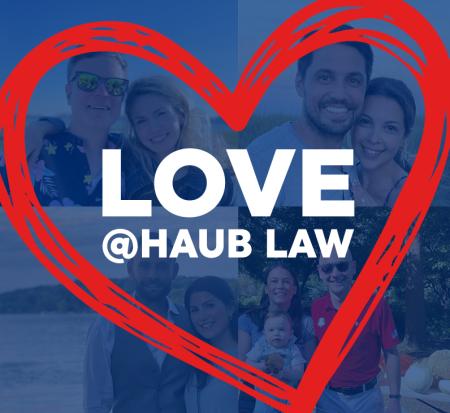
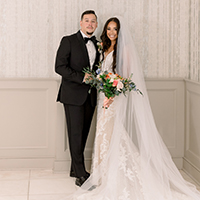 Angelica (Cancel) Montoya '17 and Jordan Montoya '17 met during their 1L orientation. “We were in different sections, so we didn't get to interact much during our first year,” said Jordan. “However, during the summer after our first year, Angelica reached out to me to be on the National Puerto Rican Bar Association moot court team together for LALSA with a mutual friend of ours, Richard Roman ('17). We ended up winning the competition and became close as a result.” During the second semester of their 2L year, Angelica and Jordan made it official when they started dating. Then, in May of 2023, Jordan and Angelica got married after eight years of dating. “It was a very heavy Haub Law wedding. My best man was Jonathan Campozano '17, Miguel Sanchez (Associate Dean of Admissions) was a groomsman, and his son our ring bearer, and the daughter of our friend Karine Patino ’16 was our flower girl!”
Angelica (Cancel) Montoya '17 and Jordan Montoya '17 met during their 1L orientation. “We were in different sections, so we didn't get to interact much during our first year,” said Jordan. “However, during the summer after our first year, Angelica reached out to me to be on the National Puerto Rican Bar Association moot court team together for LALSA with a mutual friend of ours, Richard Roman ('17). We ended up winning the competition and became close as a result.” During the second semester of their 2L year, Angelica and Jordan made it official when they started dating. Then, in May of 2023, Jordan and Angelica got married after eight years of dating. “It was a very heavy Haub Law wedding. My best man was Jonathan Campozano '17, Miguel Sanchez (Associate Dean of Admissions) was a groomsman, and his son our ring bearer, and the daughter of our friend Karine Patino ’16 was our flower girl!”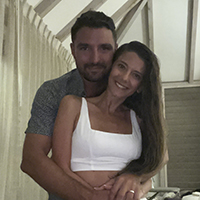 Arthur J. Muller ’15 and Giuliana E. Trivella-Muller ’17 met in Haub Law’s Moot Courtroom during Giuliana’s first-year orientation where Arthur (AJ) was one of the student speakers. As Giuliana puts it, it was love at first sight for her. AJ’s initial hard-to-get tactic proved unsuccessful, and the couple became exclusive just a few months later and tied the knot in August 2021. They just welcomed a new addition to their family last month – Nicolo Alessio. The couple continues to be active contributors to the Haub Law community. AJ is an adjunct professor at the Law School and the couple continues to coach successful mock trial teams for the Advocacy Program, which is currently ranked in the top 15% of the Nation.
Arthur J. Muller ’15 and Giuliana E. Trivella-Muller ’17 met in Haub Law’s Moot Courtroom during Giuliana’s first-year orientation where Arthur (AJ) was one of the student speakers. As Giuliana puts it, it was love at first sight for her. AJ’s initial hard-to-get tactic proved unsuccessful, and the couple became exclusive just a few months later and tied the knot in August 2021. They just welcomed a new addition to their family last month – Nicolo Alessio. The couple continues to be active contributors to the Haub Law community. AJ is an adjunct professor at the Law School and the couple continues to coach successful mock trial teams for the Advocacy Program, which is currently ranked in the top 15% of the Nation. 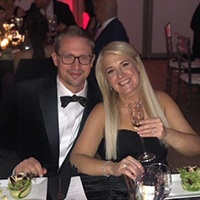 Aaron Goldsmith ‘02 and Ali (Shusterman) Goldsmith ’02 met in 1999 during their fall 1L semester at an old local White Plains bar called “Oliver’s.” Both Aaron and Ali were out celebrating their birthdays, with Aaron’s falling a day before Ali’s. Fifteen months later they were engaged and married shortly after taking the bar examination in 2002! Aaron and Ali are blessed with three children, Ben (18), Shiloh (14), and Ella (14), who they describe as the greatest joys of their lives. Aaron splits his practice between commercial litigation and criminal defense. Ali works primarily in Family Court and also does pro-bono work for domestic violence survivors.
Aaron Goldsmith ‘02 and Ali (Shusterman) Goldsmith ’02 met in 1999 during their fall 1L semester at an old local White Plains bar called “Oliver’s.” Both Aaron and Ali were out celebrating their birthdays, with Aaron’s falling a day before Ali’s. Fifteen months later they were engaged and married shortly after taking the bar examination in 2002! Aaron and Ali are blessed with three children, Ben (18), Shiloh (14), and Ella (14), who they describe as the greatest joys of their lives. Aaron splits his practice between commercial litigation and criminal defense. Ali works primarily in Family Court and also does pro-bono work for domestic violence survivors.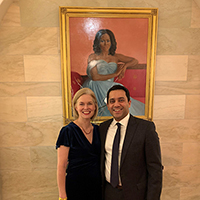 Shamik Trivedi ’08 and Adrienne Fortin Trivedi ’08 met at Earth Day in 2006 – Adrienne was selling t-shirts for ELS. Shamik bought a shirt from her, and, as Shamik puts it “the rest, they say, is history.” Shamik and Adrienne were married in 2014 and have two amazing children together.
Shamik Trivedi ’08 and Adrienne Fortin Trivedi ’08 met at Earth Day in 2006 – Adrienne was selling t-shirts for ELS. Shamik bought a shirt from her, and, as Shamik puts it “the rest, they say, is history.” Shamik and Adrienne were married in 2014 and have two amazing children together.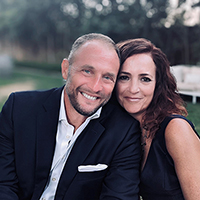 Jeff Norton ’97 and Stephanie Krigman Norton ’98 met in the library while Jeff was a 2L and Stephanie a 1L. Stephanie and Jeff married in 1998 with Haub Law’s Professor Randolph McLaughlin in attendance at their wedding! Jeff and Stephanie celebrate 25 years of marriage this year.
Jeff Norton ’97 and Stephanie Krigman Norton ’98 met in the library while Jeff was a 2L and Stephanie a 1L. Stephanie and Jeff married in 1998 with Haub Law’s Professor Randolph McLaughlin in attendance at their wedding! Jeff and Stephanie celebrate 25 years of marriage this year.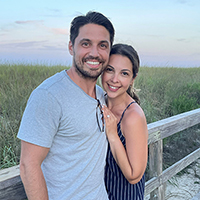 Michael J. Konicoff ‘13 and Taylor A. Piscionere ’13 met during their first year of law school where they were in the same section. A few years later they were engaged on the Haub Law campus, right outside the library where they first met. They have been married seven years and have two children.
Michael J. Konicoff ‘13 and Taylor A. Piscionere ’13 met during their first year of law school where they were in the same section. A few years later they were engaged on the Haub Law campus, right outside the library where they first met. They have been married seven years and have two children.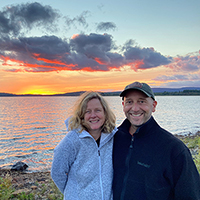 David Shofi ‘94 and Leanne (Murray) Shofi ’94 met at Haub Law in their Legal Research and Writing Class and were engaged by their 3L year! Today, they practice law in Ridgefield, CT and have two adult children (one a 2020 graduate of Pace's Musical Theater program – Pace pride runs deep in the Shofi household!).
David Shofi ‘94 and Leanne (Murray) Shofi ’94 met at Haub Law in their Legal Research and Writing Class and were engaged by their 3L year! Today, they practice law in Ridgefield, CT and have two adult children (one a 2020 graduate of Pace's Musical Theater program – Pace pride runs deep in the Shofi household!).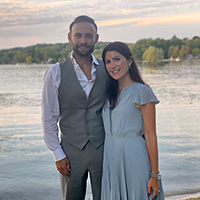 During law school, Brendan Alt ’12 and Brittany Gold Alt ’12 began working/interning at a local law firm located in White Plains together. Their friendship grew and upon graduation and taking the bar exam they went away for what was supposed to be a long weekend and ended up staying together all summer. Brendan and Brittany were married a couple of years later!
During law school, Brendan Alt ’12 and Brittany Gold Alt ’12 began working/interning at a local law firm located in White Plains together. Their friendship grew and upon graduation and taking the bar exam they went away for what was supposed to be a long weekend and ended up staying together all summer. Brendan and Brittany were married a couple of years later! Brent Keith ‘09 and Erin Flannery Keith ‘09 were environmental law friends at Haub Law, but didn’t become a couple until reconnecting through work travel two years after graduation. They live in the Boston area where Erin is an Assistant Regional Counsel at the U.S. Environmental Protection Agency Region 1 and Brent is the Federal Lands Policy Team Lead at The Nature Conservancy. They have been married for ten years and their 4.5 year old has a penchant for letting people know if they are wasting water.
Brent Keith ‘09 and Erin Flannery Keith ‘09 were environmental law friends at Haub Law, but didn’t become a couple until reconnecting through work travel two years after graduation. They live in the Boston area where Erin is an Assistant Regional Counsel at the U.S. Environmental Protection Agency Region 1 and Brent is the Federal Lands Policy Team Lead at The Nature Conservancy. They have been married for ten years and their 4.5 year old has a penchant for letting people know if they are wasting water.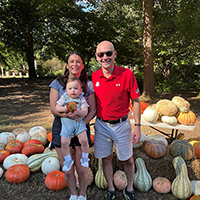 Ben Lowenthal ’13 and Michelle Simard ’13 met through mutual law school friends during their 1L year. A few short years later, Ben proposed and Michelle said yes! They were married in June 2017 in Maryland. Ben and Michelle have a son, Lyle, and currently live in Atlanta.
Ben Lowenthal ’13 and Michelle Simard ’13 met through mutual law school friends during their 1L year. A few short years later, Ben proposed and Michelle said yes! They were married in June 2017 in Maryland. Ben and Michelle have a son, Lyle, and currently live in Atlanta.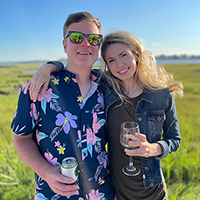 Joseph Mack (Lubin School of Business ‘98/Haub Law ’01) and Karyllan Dodson Mack ‘03 first met in the fall of 2000 when Joe was the Dean’s Scholar for Professor Nolon’s Property Law class. The two were married in April of 2003 and will celebrate 20 years of marriage this year. They live in New Jersey with their two children.
Joseph Mack (Lubin School of Business ‘98/Haub Law ’01) and Karyllan Dodson Mack ‘03 first met in the fall of 2000 when Joe was the Dean’s Scholar for Professor Nolon’s Property Law class. The two were married in April of 2003 and will celebrate 20 years of marriage this year. They live in New Jersey with their two children.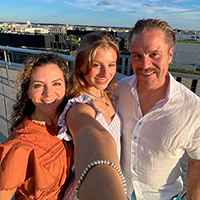 Circa 1995, Suzanne Squarcia Haynes '97 worked the front desk as a Dannat Hall Resident Assistant, and Nathan Haynes '98 would swing by after classes with coffee. Seeing past his ‘high and tight’ USMC haircut, love bloomed at Haub Law. Today, Nathan and Suzanne reside in lower Manhattan and their daughter, Maddie, is in her freshman year at GW in Washington, DC.
Circa 1995, Suzanne Squarcia Haynes '97 worked the front desk as a Dannat Hall Resident Assistant, and Nathan Haynes '98 would swing by after classes with coffee. Seeing past his ‘high and tight’ USMC haircut, love bloomed at Haub Law. Today, Nathan and Suzanne reside in lower Manhattan and their daughter, Maddie, is in her freshman year at GW in Washington, DC.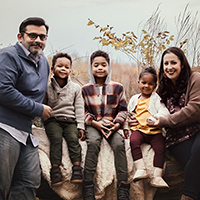 When Saad Siddiqui ’07 started his term as president of Haub Law’s Honor Board during his 3L year, he had no idea that one of the incoming Board members, Samantha Schwartz Siddiqui ’08, would be his future wife! Over the course of working together the two learned they had many mutual friends and began spending a lot of time together socially. Fast-forward to an engagement in Paris, a marriage in New Rochelle, and three children and a home right in White Plains!
When Saad Siddiqui ’07 started his term as president of Haub Law’s Honor Board during his 3L year, he had no idea that one of the incoming Board members, Samantha Schwartz Siddiqui ’08, would be his future wife! Over the course of working together the two learned they had many mutual friends and began spending a lot of time together socially. Fast-forward to an engagement in Paris, a marriage in New Rochelle, and three children and a home right in White Plains! Alex Temple ’08 and Lauren Hughes Temple ’08 met in their 2L year, through their friends, and fellow alumni, Shamik Trivedi ’08 and Adrienne Fortin Trivedi ‘08. The four have remained close friends ever since. Alex and Lauren are the proud parents of two children, Susannah and Cameron.
Alex Temple ’08 and Lauren Hughes Temple ’08 met in their 2L year, through their friends, and fellow alumni, Shamik Trivedi ’08 and Adrienne Fortin Trivedi ‘08. The four have remained close friends ever since. Alex and Lauren are the proud parents of two children, Susannah and Cameron.